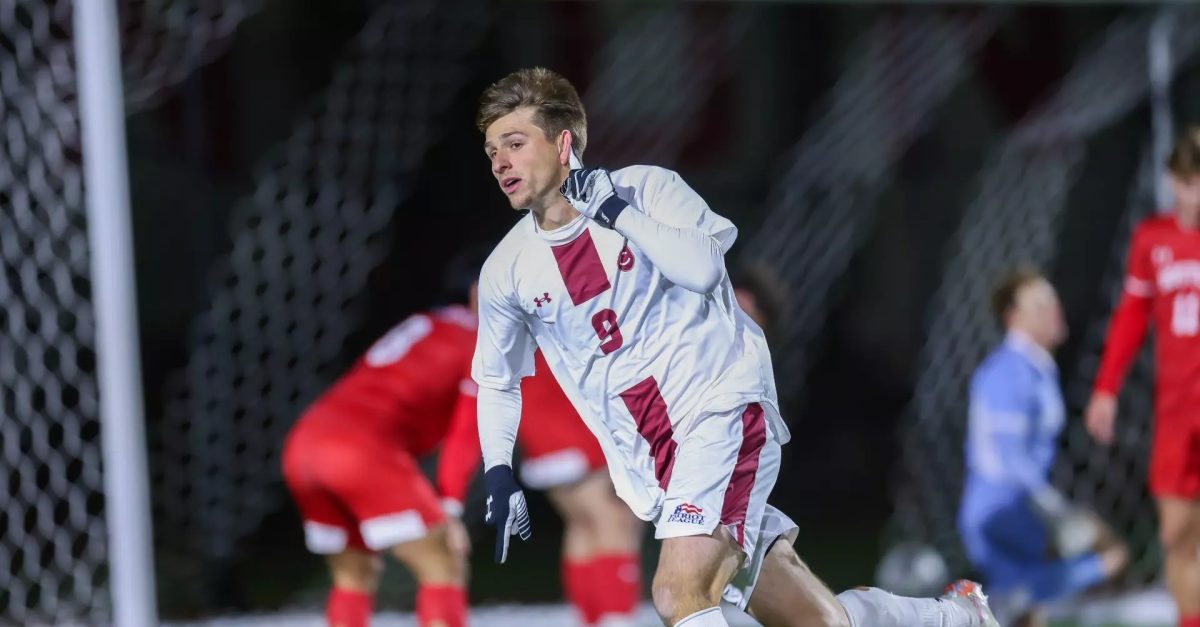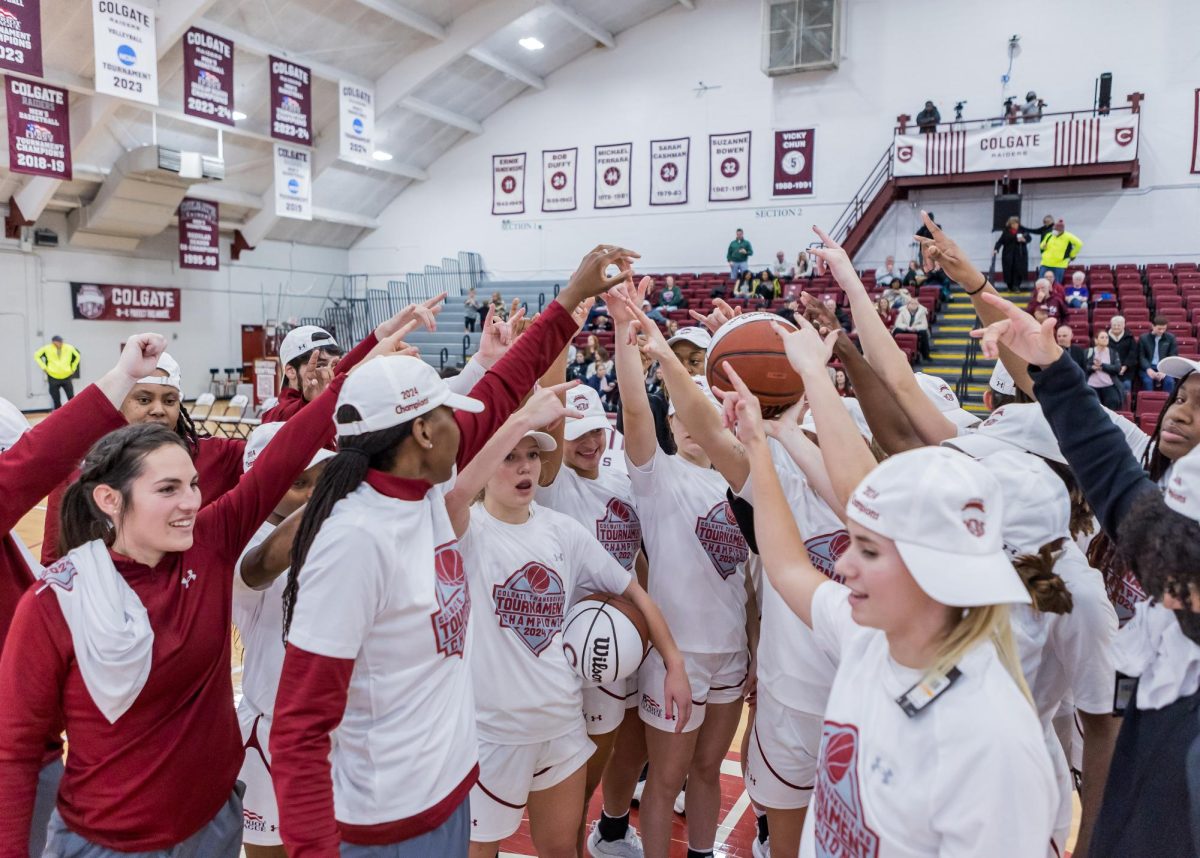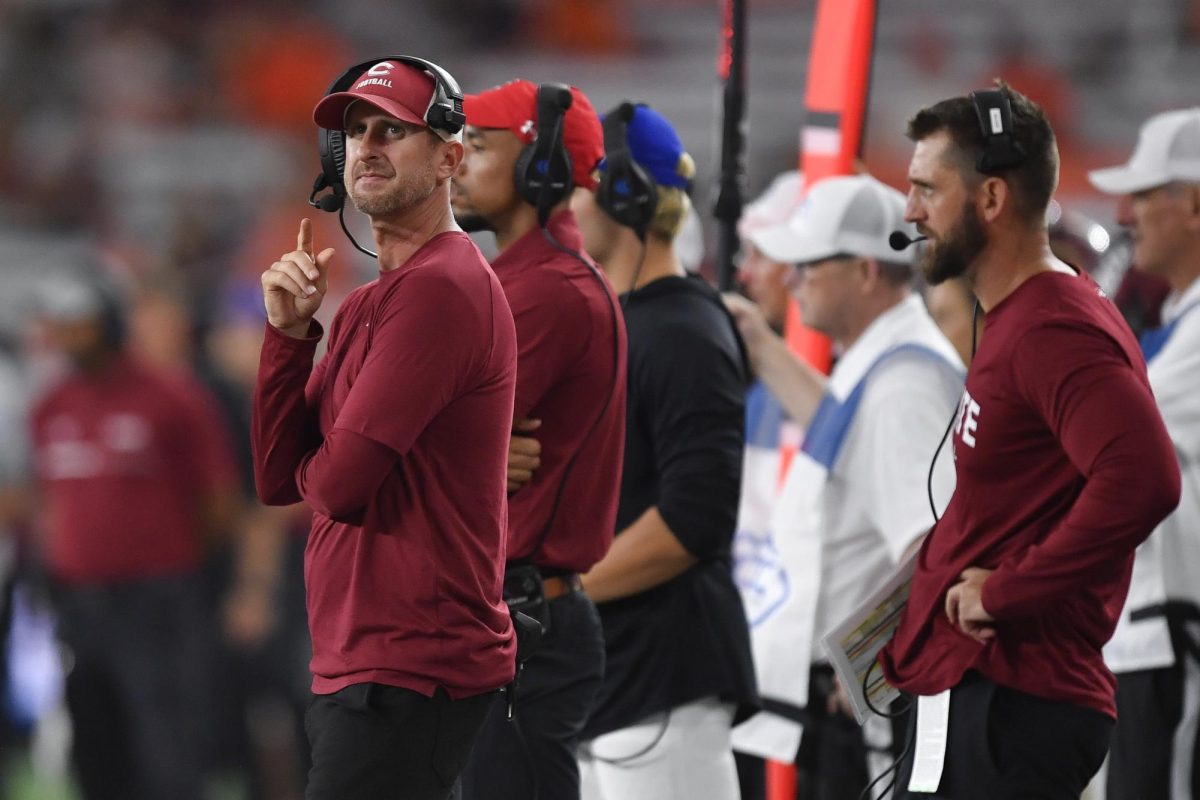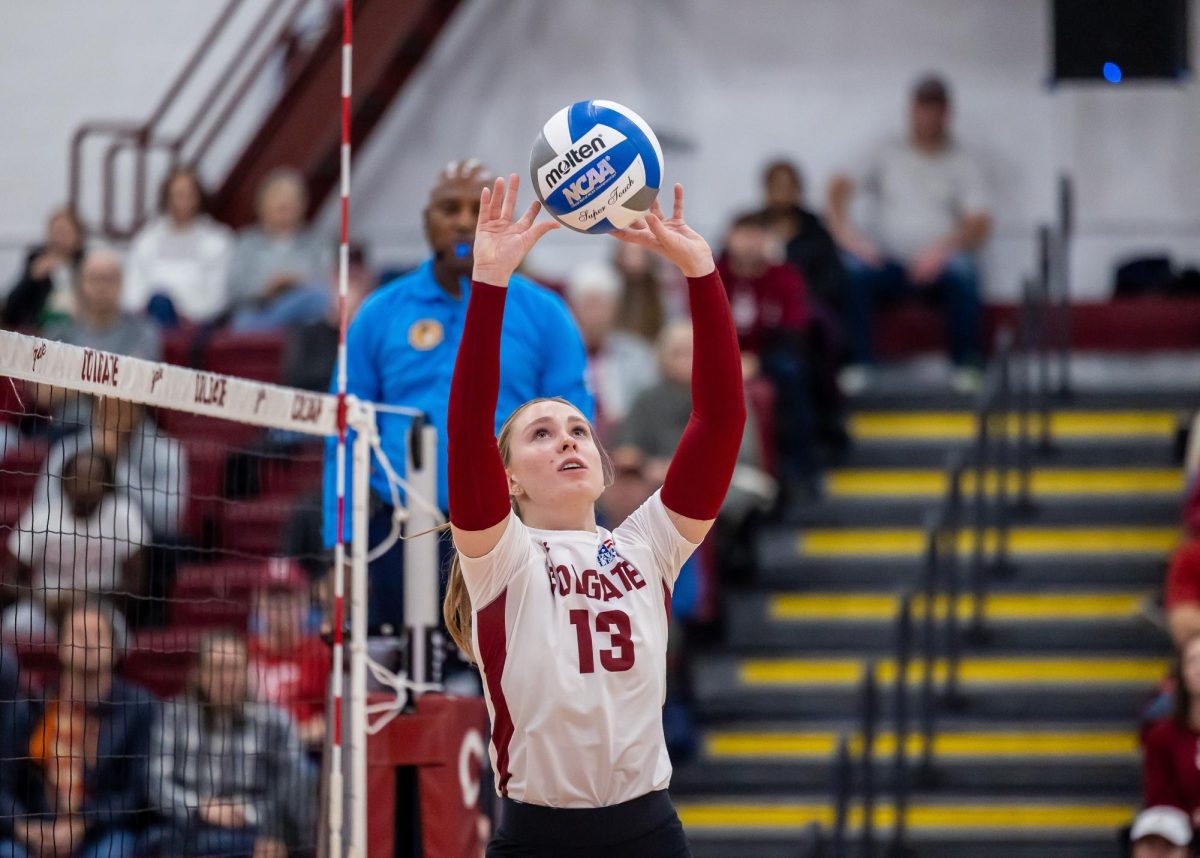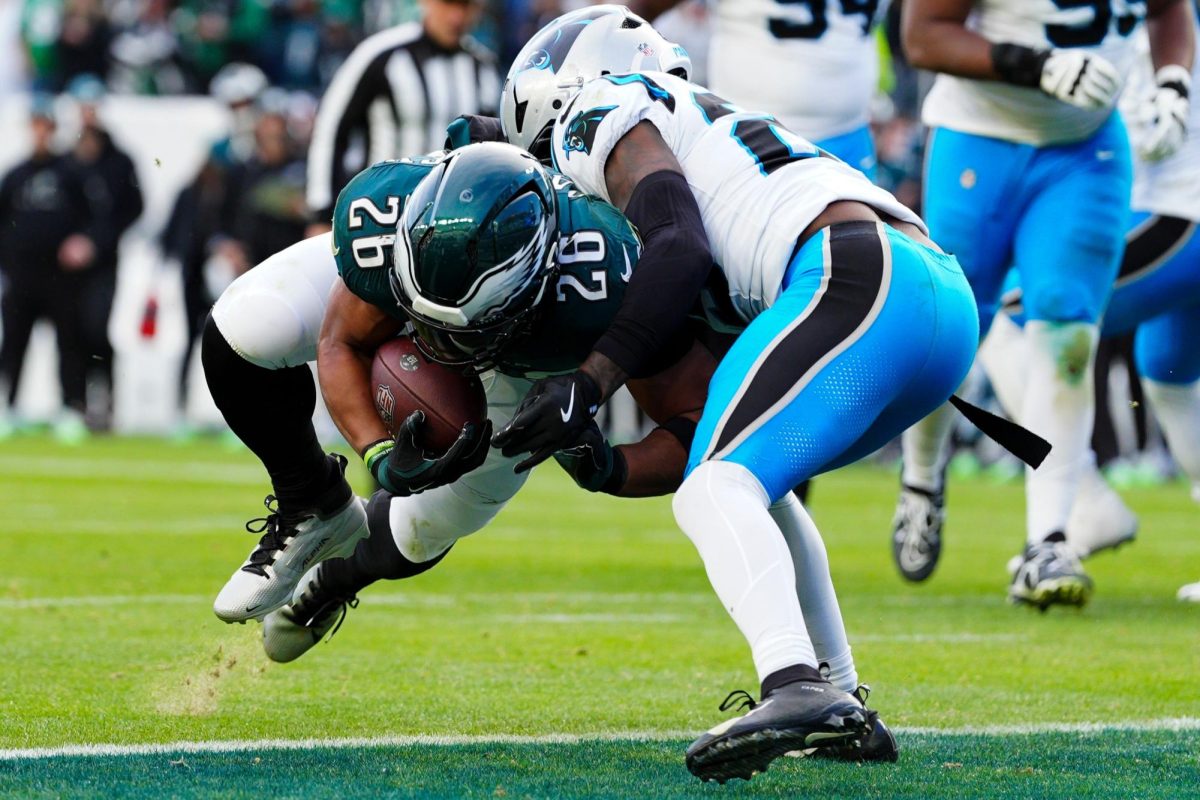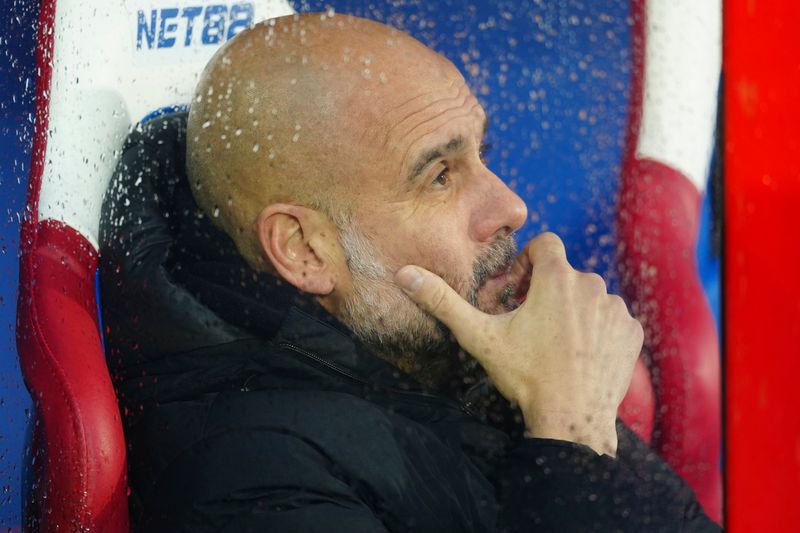They walk around in their personalized parkas and backpacks; they travel in tight-knit herds in Frank; they are often found at Huntington Gymnasium. They are known as student-athletes.
There are 23 teams and over 500 student-athletes at Colgate University, which holds NCAA Division I standing despite its small size. Some of the sports include men and women’s basketball, ice hockey, lacrosse and soccer — just to name a few. The Colgate Raiders compete in the Patriot League, except for men and women’s ice hockey, which compete in the Eastern College Athletic Conference (ECAC).
Something special about a school like Colgate is that student-athletes are so integrated into campus life. We watch their games in small arenas and stadiums while sharing living spaces, classes and college memories together.
Yet, despite this familiarity, it is difficult to fully grasp the experience without being a student-athlete yourself. So, I spoke to five student-athletes across five different teams to gain a better understanding of what life is like as a Colgate student-athlete. Here is some of what I found.
Starting with the overall time commitment, being a student-athlete is essentially like holding a part-time job. Senior and Ontario native Ella Murphy, a member of Colgate’s field hockey team, spoke to this idea.
“In-season, we are allowed to participate in 20 hours of field-hockey related activities, including lifts, practices, games [and] meetings,” Murphy said.
Senior Pierson Brandon, a defenseman on the men’s ice hockey team, also talked about his intensive schedule.
“We practice Tuesday, Wednesday and Thursday and have games Friday and Saturday,” Brandon said. “Tuesdays we lift, and Sundays we have yoga.”
Diving further into their daily lives, student-athletes often must start their days very early. Sophomore and New York native Carlie Rzeszotarski, a member of Colgate’s volleyball team, shared her routine.
“We have 8 a.m. lift Monday, Wednesday and Friday, so I get up at 7 a.m.,” Rzeszotarski said.
Sometimes, it’s even earlier than that, as Murphy explained.
“The earliest team event we commonly have is 6 a.m. or 7 a.m. team lift or conditioning, so I usually get up an hour before,” Murphy said.
How about the traveling component? Senior and Pennsylvania native Jeff Woodward, who stands at a commanding 6’11” and plays on the men’s basketball team, shared a bit of his travel schedule, in which traveling around once a week often impacts the rest of his responsibilities as a student-athlete.
“Traveling to games almost always results in missing class,” Woodward said.
Sophomore Sara Stewart, a forward from Nova Scotia on the women’s ice hockey team, echoed Woodward’s comment on the exact academic price of traveling.
“When we travel, we miss Thursday afternoon and Friday classes,” Stewart said.
Traveling for road games, which can happen as often as once a week for athletes with busier schedules, means sacrificing either one or even two days of classes. Understandably, this makes it harder for student-athletes to stay on top of schoolwork.
As if their respective seasons do not require enough time from student-athletes, the offseason can also be demanding. Murphy spoke about their offseason preparation and training, which occurs in the Spring semester.
“In the spring, we typically only practice twice a week […], but lift and condition three to four times [a week],” Murphy said.
Some sports even have games against other schools during the offseason, including the volleyball team.
“Our offseason is a season in itself, so we have lift and practice commitments, including three weekends of gameplay,” Rzeszotarski said.
If you thought student-athletes only had to commit one semester to their sport, you would be proven wrong. In fact, many are on campus during the summer months, like the men’s basketball team.
“We come back to a campus a couple of times over the summer,” Woodward said.
Given the 20-hour time commitment, the early-morning wake-ups, the weekly travel obligations, the missed classes and the offseason preparation, how do athletes have time for other obligations in their lives? These five student-athletes highlighted a few key strategies.
Murphy stressed that communication with professors, for example, is very important.
“We try to talk to our professors as soon as possible about missed classes once we know we’ll be absent so that we can plan accordingly and not fall behind in the material,” Murphy said.
Stewart added to the importance of staying on top of schoolwork.
“I think it’s easiest to balance when you plan ahead and make sure to stay on top of your work,” Stewart said.
This might mean finishing some work before you leave for a weekend road game. Or, it could even mean doing work on the trip.
Despite the many challenges that come with being a student-athlete, there are incredible rewards that come from the experience, too. Each of the five student-athletes described what they love most about being a Colgate student-athlete.
“Being a part of a team allowed me to meet so many wonderful people in the athletic department and make many new friends,” Murphy said.
Being a student-athlete has allowed countless individuals pick up skills that reach beyond the scope of their sport.
“The time management and organization skills I’ve learned are very much worth it,” Rzeszotarski said.
Woodward spoke on the impact their team has on the community, and what that means to him.
“It shows how something we do for fun has a real impact on people’s lives,” Woodward said.
Brandon echoed Woodward’s sentiment, pointing out that their dedication reaches far more people than just themselves and their teammates.
“The purpose it gives me to go to the rink every day and be with my team […] and build the program is incredibly rewarding,” Brandon said.
Stewart also pointed out the communal impact her playing a sport has, something which arguably rings more true in such a small and tight-knit community such as Colgate and the surrounding area.
“I love the community and culture created by being part of a team every day,” Stewart said.
Although it is tough work, the rewards are endless and clear: lifelong bonds with teammates and coaches, transferable work and life skills, growing and improving as a team, playing the sport you love and sharing that love with the family, friends and fans who watch.
Being a student-athlete is a uniquely special experience, and it is even more special here at Colgate, where there is constant interaction with everyone in the community both on and off the field, ice and court.



